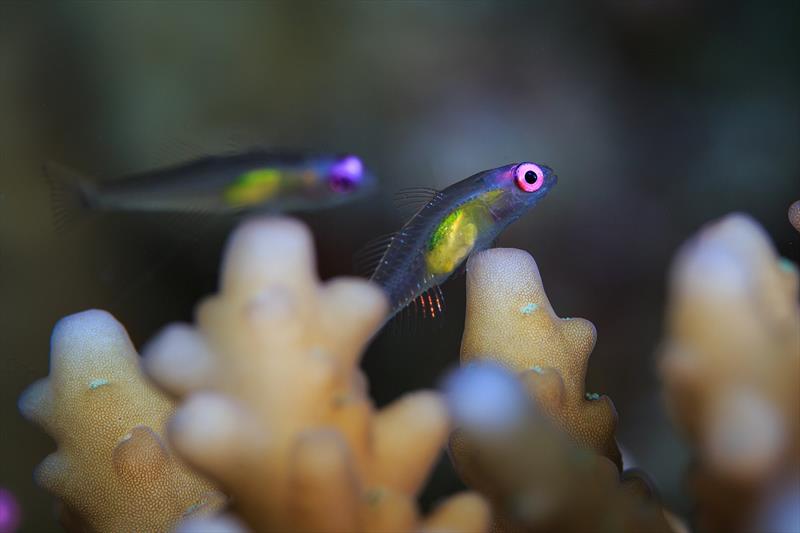
Tiny fish live fast, die young
by Melissa Lyne 30 May 2019 07:16 UTC

Redeye Gobies ( Bryaninops natans ) hover in small groups above coral heads, on which they rely for shelter. By living fast and dying young, these tiny (<2cm) fishes fuel reef fish biomass production © Tane Sinclair-Taylor
New research has revealed that the short lives and violent deaths of some of coral reefs' smallest tenants may be vital to the health of reef systems, including the iconic Great Barrier Reef.
Dr Simon Brandl, from Simon Fraser University in Canada, led an international team of researchers searching for answers to the longstanding puzzle of 'Darwin's paradox'.
Co-author Prof David Bellwood from the ARC Centre of Excellence for Coral Reef Studies (Coral CoE) at James Cook University (JCU) said: "Charles Darwin wondered how fish on coral reefs manage to thrive in isolated areas where there are very low levels of nutrients for them to use. We thought the answer may lie in the tiny fish that live in the gaps in the coral structure."
"These tiny fish are less than five centimetres long and are known as 'cryptobenthics'. They include gobies, blennies, cardinalfish, and several other families," Prof Bellwood said.
The team surveyed reefs around the globe and records of larval abundance. They discovered that cryptobenthics and their larvae make up nearly 60% of all fish flesh eaten on the reef.
"Because of their size and tendency to hide, these little fish are commonly overlooked," Dr Brandl said, "but their unique demographics make them a cornerstone of the ecosystem."
"Their populations are completely renewed seven times a year, with individuals in some species living only a few days before they are eaten. The only way they can sustain this is by a spectacular supply of local larvae," added co-author Renato Morais, a PhD student at JCU.
Prof Bellwood said almost anything capable of eating cryptobenthics does so, including juvenile fish and invertebrates such as mantis shrimps, which then became food for other creatures.
"These factors have made it hard for researchers in the past to realise the importance of cryptobenthics and discover the food supply that the 'crypto-pump' supplies."
He said that the cryptobenthics have finally emerged from the shadows. "Their extraordinary larval dynamics, rapid growth, and extreme mortality underpins their newly discovered role as a critical functional group on coral reefs."
Paper: Brandl S, Tornabene L, Goatley C, Casey J, Morais R, Cote I, Baldwin C, Parravicini V, Schiettekatte N, Bellwood D (2019). 'Demographic dynamics of the smallest marine vertebrates fuel coral-reef ecosystem functioning'. Science. DOI: 10.1126/science.aav3384
More information available here.